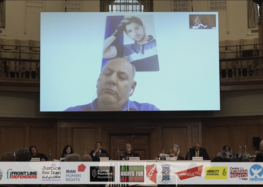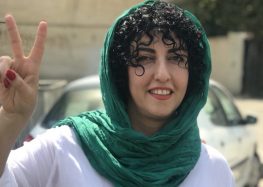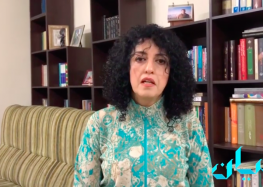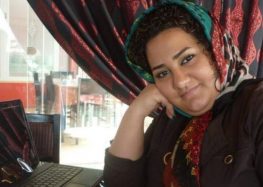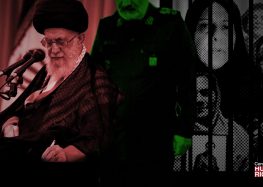University Helped Build Sham Court Case against Young Student Activist, Source Reveals
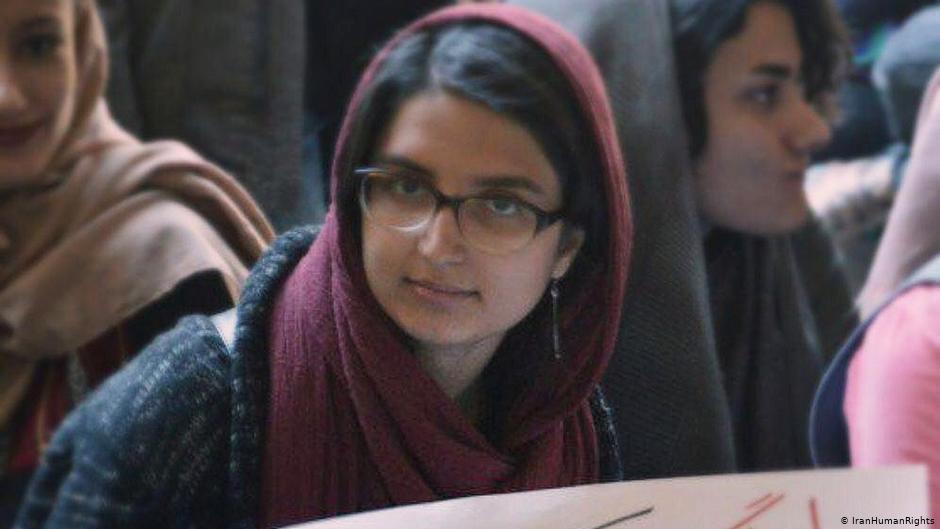
Parisa Rafiei Loses Her Last Legal Challenge to Seven-Year Sentence for Peaceful Protest
Parisa Rafiei, the young student activist who recently lost her last chance to have her seven-year prison sentence reviewed by Iran’s Supreme Court, was convicted based on reports that her own university submitted, a source with detailed knowledge of the case revealed to the Center for Human Rights in Iran (CHRI). The university had long claimed it had made inquiries on Parisa’s behalf.
“The university’s chancellor and cultural affairs assistant had given interviews claiming that they were making inquiries [to help] Parisa and another detained student but the fact is that they themselves had submitted reports against Parisa which became the basis for her conviction,” a source with knowledge about the case told CHRI on condition of anonymity.
On November 16, Iran’s Supreme Court rejected a request for a judicial review of the seven-year prison sentence and 74 lashes, in addition to a two-year ban on traveling abroad and political and social activities, against student activist Parisa Rafiei, her mother tweeted.
The source continued: “Parisa’s trade union activities at the university were lawful and within existing guidelines and yet she was treated as a criminal. The indictment made several references to her participation in various rallies, such as protests against entrance and exit hours at dormitories for female students as well as protests against tuition rates and transportation services… None of these were violations of the law.”
On July 2, 2019, the Appeals Court had upheld Rafiei’s conviction on charges of “assembly and collusion against national security,” “propaganda against the state” and “disrupting public order.”
Based on Article 134 of Iran’s Islamic Penal Code, Rafiei will be eligible for release after serving five years.
The 21-year-old photography major and student trade unionist at the University of Tehran had been arrested in February 2018 for allegedly participating in street protests.
Rafiei’s father, Soltanali Rafiei, is a senior official of the reformist Islamic Union Party of Iran, a close political ally of President Hassan Rouhani.
“Eight days after Parisa’s detention, her father went to the courthouse to make inquiries and was told that his daughter was not cooperating [with interrogators] and therefore was being deprived of her rights,” the source added.
That same day, as punishment for her resistance, the student was charged with “assembly and collusion against national security,” which resulted in an additional five years in prison on top of one-year prison terms each for the initial charges of “propaganda against the state” and “disrupting public order,” according to the source.
“The family was informed that the Appeals Court hearing would take place in July but when they went to the courthouse they were told that the hearing would not take place due to an order from Judiciary Chief Ebrahim Raisi who decided that Appeals Court rulings could be made without hearings,” the source told CHRI.
In May, Rafiei spoke out against attempts to force her to take a “virginity test” while in detention.
“In a totally unlawful action during my detention, my interrogator with the approval of the case investigator sent me to the medical examiner’s office on Behesht St. for a virginity test but I stood firm and despite threats and lots of pressure, they did not succeed,” she wrote in an open letter.
“I insisted on lodging a complaint against this illegal request [of a virginity test] several times but the authorities refused and kept it quiet,” she added.

